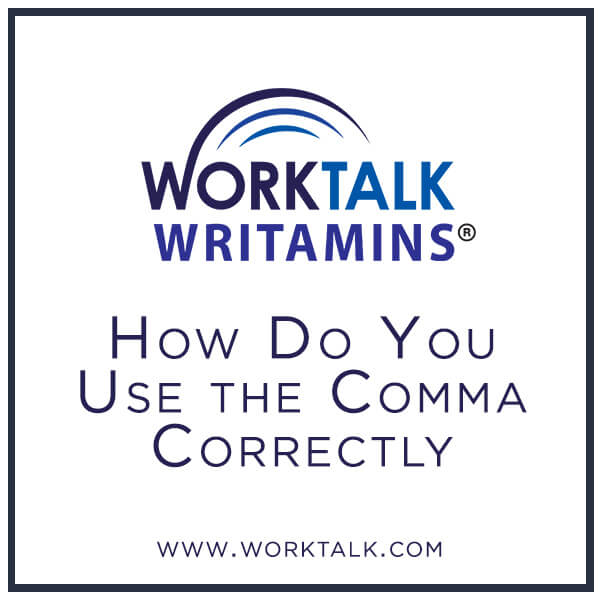
Can a comma — or the lack of a comma — trigger a lawsuit?
Consider: William Johnson writes a will in which he states, “I leave my estate to my children, Paul, Henry, Susan and Sally,” William lives out his years, and when the will is read, the children are confused. Do Susan and Sally split a third of the estate, or does each child receive a quarter? If the will had said, “I leave my estate to Paul, Henry, Susan, and Sally,” there would be no doubt. Many a lawsuit has been launched over a comma.
The comma, is often, misused. Either people put too many into a sentence or they race through the sentence without allowing the reader to pause for breath. The previous two sentences each contained comma errors. We do not place a comma between a subject and a predicate, (It should say: The comma is often misused.), and we do place a comma before a conjunction (It should say: …too many into a sentence, or they race…). It is the comma’s very usefulness that causes so many people to err.
The simplest way to determine whether to insert a comma is to read aloud and insert a comma where you pause. However, this solution is not foolproof. You might read in a hurry or miss some structural necessity for a comma. Think about the function of the comma in the sentence, and you will know better. Here are the three functions of the comma:
To Introduce
The comma follows introductory phrases.
- As we discussed, we have prepared your 2014 3rd quarter estimates.
- On a side note, Marilyn can attend the meeting if we move it to Tuesday.
- Heading for the train, he realized that he had forgotten his briefcase.
If/then constructions always require a comma between clauses.
- If this is correct, then we would have a significant reduction in income sourced to New York.
When a sentence begins with a dependent clause, put a comma after the clause.
- When I get home, I will look into it.
- Because she was unable to make the reservation, she missed the trip.
- Although we rely on currently available data, we cannot guarantee future results.
To Separate
Commas separate items in a series. The comma before the last item on the list — the one that comes just before the conjunction — is called the serial comma. It is also known as the Oxford comma. The serial comma is optional, but I recommend that you use it because it reduces ambiguity..
- Please buy pens, pencils, and paper clips.
Commas separate two independent clauses, coming before the conjunction.
- We want to go to the concert, but we already have plans for that night.
- The plan will be implemented soon, and will surely be a success.
Commas set off contrasting elements.
- It was his hard work, not luck or chance, that led to his success.
Commas separate interchangeable adjectives.
- The healthy, strong child ran down the street.
To Enclose
Commas set off non-essential elements of a sentence.
- However, based on the size of these adjustments, I suggest that we consider filing amended returns for the 2013 tax year.
- The rooms, which I painted last summer, are very airy.
Commas set off appositives.
- Mark, my manager, has been here for seven years.
Commas enclose parenthetical remarks.
- She is, as you know, not a discreet person.
Still have questions about commas? Not to worry. The Gregg Reference Manual contains about 20 pages that deal with the vicissitudes of comma usage. Many grammar references drill down in excruciating detail the hows and whys of commas. Many resources are available to you.
The main thing to remember about commas is this:
Use commas to pace your reader’s attention. All the rules about commas are really ways of helping your reader walk through the phrase or sentence without tripping over some unexpected piece of information.
As useful as commas are, however, there is one thing they can never do. They can never end a sentence. That’s the job of the period.
